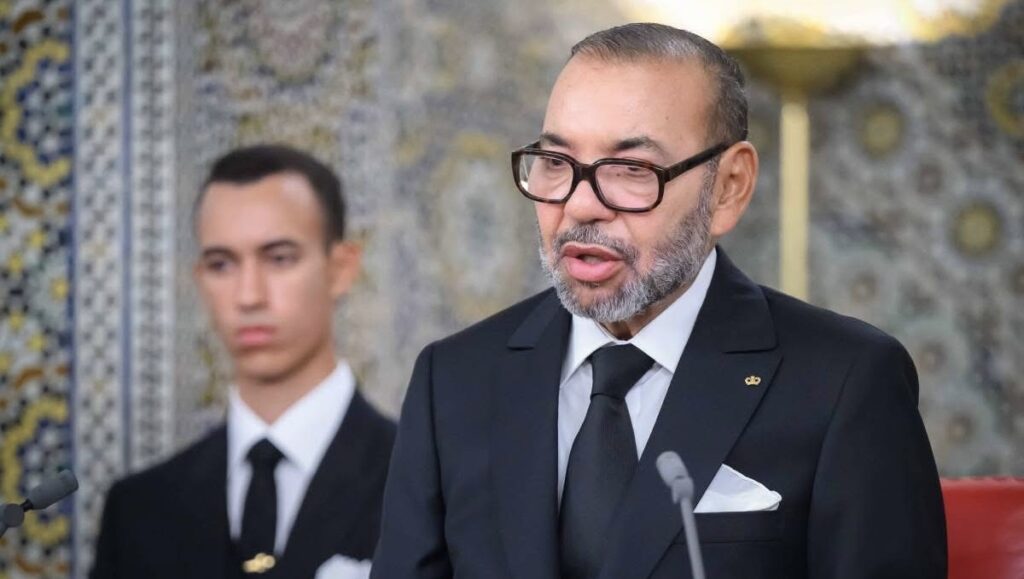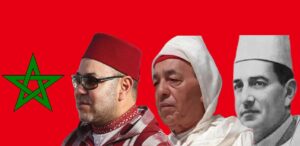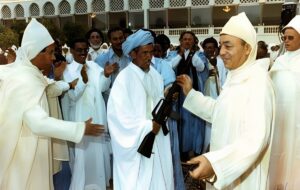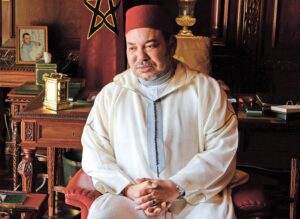Will the Algerian regime seize the lifeline thrown to it by King Mohammed VI?

The annual Throne Day celebration provides an opportunity for King Mohammed VI to connect with his citizens, within the framework of the allegiance that binds Moroccans together and a royal pledge to protect the interests of his people in return. This relationship, which both sides strive to preserve, nurture, and promote, distinguishes the Moroccan monarchy from other regimes in its regional and continental environment, where the authorities exercise a one-way, "top-down" relationship with the people. Thus, the Throne Speech—as is his custom—reviewed the achievements of the past year and took stock of the challenges facing the coming year. This was reflected in the King's emphasis on the importance of the economic achievements, particularly in the industrial sector across various sectors. He did not overlook the disparities in how different regions benefit from this growth, particularly in rural areas, due to the lack of infrastructure. He issued a decisive warning to those responsible for managing public affairs: "There is no place today or tomorrow for a Morocco that runs at two speeds!" A message that was perhaps the most important to various officials in all positions of responsibility, and which they worked to implement on the ground in order to bridge the spatial gap in Mohammed VI's Morocco.
However, what seemed striking in the royal speech was the significant space he devoted to discussing the relationship with his “brotherly” Algerian neighbor. He affirmed, leaving no room for doubt or interpretation, that, in his capacity as King of Morocco and head of state, “the Algerian people are a brotherly people, united with the Moroccan people by deep-rooted human and historical ties, bound together by language, religion, geography, and a common destiny.” He recalled his constant commitment to extending a hand to his Algerian brothers, and his call for “a frank and responsible dialogue; a fraternal and sincere dialogue, on the various outstanding issues between the two countries.” The Moroccan monarch emphasized that this commitment to ensuring Morocco’s hand remains extended to its Algerian brothers stems from His Majesty’s belief in the unity of the peoples of the region, and the ability of the two countries to overcome this imbalance in their relationship that has persisted for decades without reasonable justification.
Here, we pause for a moment to try to understand the logic of the Algerian authorities in continuing to adopt hostility towards Morocco as a fixed policy of the regime, and we ask: Which serves the interests of the regime itself (before talking about the interests of the Algerian people): hostility towards Morocco or accepting its outstretched hand and sitting down at the negotiating table to discuss the real problems between them, if any!!
Everyone knows that the Algerian regime is literally "drowning" in a sea of structural problems that can be considered accumulated bills dating back to the era of President Boumediene. Most of these problems are internal, relating to the structure of the regime, the composition of its forces, and the nature of its economy, among other things. This is compounded by a series of crises that are virtually destroying Algeria's relations with all of its neighbors (Morocco, Mali, Niger, Libya, Mauritania, and, to a lesser extent, Tunisia). Those in decision-making positions within the Algerian regime realize—more than anyone else—that resolving the outstanding issues with Morocco, most notably the dispute over its territorial integrity, will guarantee a double benefit: on the one hand, it will resolve internal economic problems by linking the two economies and mutually benefiting each other; and on the other hand, it will resolve crises with other neighboring countries, most of which maintain ideal relations with Morocco. Decision-makers in Algeria are also aware that the artificial conflict over Moroccan Sahara has ended and the secession project has been declared dead. The date of the funeral will be announced within two months. Therefore, refraining from attending the funeral, despite its difficulty, by accepting King Mohammed VI's outstretched hand, ensures the best possible way out of this predicament, as it has become almost impossible for Algeria's rulers to reverse international recognition of Moroccan Sahara.
The masterstroke of King Mohammed VI’s speech was completed by his dual message to the Algerian leadership and its protégé, the Polisario Front. This message further clarifies Morocco’s goal in extending its hand to its Algerian neighbor, when he affirmed his commitment to “finding a consensual solution, with no victor or vanquished, that saves face for all parties.” This phrase is open to interpretation, as Morocco does not wish to “boast” about its victory in the Moroccan Sahara issue, a reality that is historically consistent with the Moroccan character. It is aware that this behavior, which is far from Moroccan ethics, complicates, on the one hand, reaching an understanding between the two countries, and, on the other hand, establishes the continuation of the state of hostility between them in renewed forms.
The Moroccan monarch's talk of a compromise solution comes from a position of tolerant strength, given that the Western Sahara conflict has been definitively resolved, and Morocco no longer needs the recognition or cooperation of Algeria or the Polisario to close the file. However, this is the wisdom of a king with a forward-looking vision for the future, seeking to secure the relationship between Moroccans and their Algerian brothers for decades to come. King Mohammed VI's talk of compromise is, in reality, an expression of His Majesty's keenness to avoid creating a new "Sand War" complex that would mortgage the future of future generations in both countries to the specter of permanent tension and hostility, and to dismantle, through improving their relationship, the last remaining mines inherited from the first Sand War.
In conclusion, King Mohammed VI's call to "our brothers in Algeria" for a frank and responsible dialogue that contributes to overcoming the unfortunate reality between them, based on the principle of no victor and no vanquished, is in reality more than extending a hand to an opponent seeking to end the feud. It amounts to extending a "lifeline" to an opponent who fell on the ring, exhausted and unable to stand due to the blows he received, in an attempt to save face resulting from losing the match. It is a sincere expression of a desire to help his opponent stand and raise their hands together, declaring the end of the fight without declaring victory for either of them, because after all... he is his brother!! King Mohammed VI, with his courage and visionary vision, chose to forgo the personal glory that would have accrued from resolving the battle for his territorial integrity by declaring a crushing victory over his Algerian opponent, who has been hostile to him for the past half century. He preferred to side with the future of coexistence between the two brothers, Morocco and Algeria, partners in history, blood, and struggle.
In short, King Mohammed VI has chosen to prioritize the heritage of centuries-old brotherhood over five decades of enmity!!





